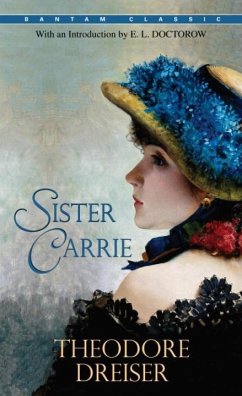Selected by the Modern Library as one of the 100 best novels of all time "American writing, before and after Dreiser's time, differed almost as much as biology before and after Darwin," said H. L. Mencken. Sister Carrie, Dreiser's great first novel, transformed the conventional "fallen woman" story into a bold and truly innovative piece of fiction when it appeared in 1900. Naïve young Caroline Meeber, a small-town girl seduced by the lure of the modern city, becomes the mistress of a traveling salesman and then of a saloon manager, who elopes with her to New York. Both its subject matter and Dreiser's unsparing, nonjudgmental approach made Sister Carrie a controversial book in its time, and the work retains the power to shock readers today. "Sister Carrie came to housebound and airless America like a great free Western wind, and to our stuffy domesticity gave us the first fresh air since Mark Twain and Whitman," noted Sinclair Lewis. "Dreiser enlarged, willy-nilly, by a kind of historical accident if you will, the range of American literature," observed Robert Penn Warren. "[Sister Carrie] is a vivid and absorbing work of art."
Dieser Download kann aus rechtlichen Gründen nur mit Rechnungsadresse in A, B, BG, CY, CZ, D, DK, EW, E, FIN, F, GR, HR, H, IRL, I, LT, L, LR, M, NL, PL, P, R, S, SLO, SK ausgeliefert werden.









